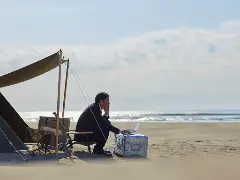

A major accident refers to an acute incident that immediately or subsequently causes significant structural/property damage, serious harm to the environment, serious personal injuries, or even fatalities. These accidents can range from fire accidents to serious car accidents, explosions, serious work-related accidents, slips and falls, major sports accidents, and accidental release of dangerous substances, to name a few.
Experiencing a serious accident can be very distressing. Due to the unexpected nature of the experience, one might be left feeling a mixture of fear, uncertainty, and shock. This can lead to an increased sense of panic while trying to figure out how best to deal with the situation. The truth is it's hard to predict how someone will react to such adverse circumstances until they occur. Furthermore, your initial steps following a major accident will differ depending on the type of accident. That being said, here's a general guide to some essential steps you should take following a major accident:
Take Care of Your Health
The first step you should take after an accident is to remain calm and ensure your safety. Try to breathe deeply and stay aware of your surroundings. Also, move to a more secure location if you're able to.
You'll then need to evaluate injuries. If you can, determine the type of injury and the severity. Then, take emergency measures to minimize and care for the injury and threat to life. Also, take appropriate steps to reduce damage to the surrounding environment and property.
The most crucial step when it comes to your health is to seek medical attention as soon as possible, even if you don't feel or physically see any pain or injuries. If left untreated, an injury can become substantially worse. A medical evaluation can provide information about potential injuries and determine their severity. Some will only require a quick visit to the hospital, while others may require long-term medical attention. A doctor may also refer you to specialists like a therapist who will be able to help you to deal with the mental impact of the incident.
A medical report can also provide official documentation of your injuries, which will be extremely important if you choose to make an injury claim.
Gather Information
There are many reasons why you must gather information following a major accident. It can help determine the extent and the financial cost of your injuries or property damage incurred. It may also be needed to help determine the cause or fault of the accident. Furthermore, it's crucial to have evidence in case you have to pursue a personal injury case. Information can be anything relevant to the accident, including tangible objects like an obstruction in the roadway, environmental conditions, accounts from yourself or witnesses, etc.
Start by identifying witnesses. Talk to them to hear their accounts of the incident. You may need to contact them later to verify the details of the accident, so remember to ask for their contact details, including names, phone numbers, and addresses. You must also take pictures or videos of the accident, which will provide visual proof of injuries and property damage. It is also worth taking photos and video recordings of the surrounding environment, to give an idea of any contributing factors. Also, write down everything that you can recall about the accident. It is common to forget details in the stress of the moment, so continue to document in the days after. You could also document how the accident has affected you physically, mentally/emotionally, financially (any financial costs or losses you incur), and personally (how it has impacted your daily routine and lifestyle).
If you are unable to do any of the following, ask someone to do them for you. If not, your attorney can request the accident report later. The police are always present in the aftermath of any major accident and often gather such information. Keep in mind that the police report only covers what law enforcement chooses to document about the accident, and as a result, it isn't necessarily focused on supporting your case.
Consult an Experienced and Knowledgeable Attorney
There's a lot more to do following a significant accident that we would be able to cover in this short text. In that case, it's in your best interest to consult with a lawyer as soon as possible. Insurance companies are always looking to minimize or dismiss claims. An experienced personal injury lawyer can assist you in handling claims, ensuring your rights are protected, and that you're rightfully compensated for your losses. Even if your request is denied, you can appeal decisions from large companies with their help.
Several other legal processes might arise following a major accident. For instance, you may face liability charges if deemed legally responsible for the accident. What if you sustain serious injuries that result in long-term illness/disability? Your ability to return to work may be jeopardized, with the possibility of dismissal. You'll need legal representation to ensure your rights are protected and that you get the best possible deal. Finding a law firm that can handle a wide variety of cases is the best way to deal with the legal repercussions following a significant accident.
This content was provided by a guest contributor.








Comments
Post a Comment